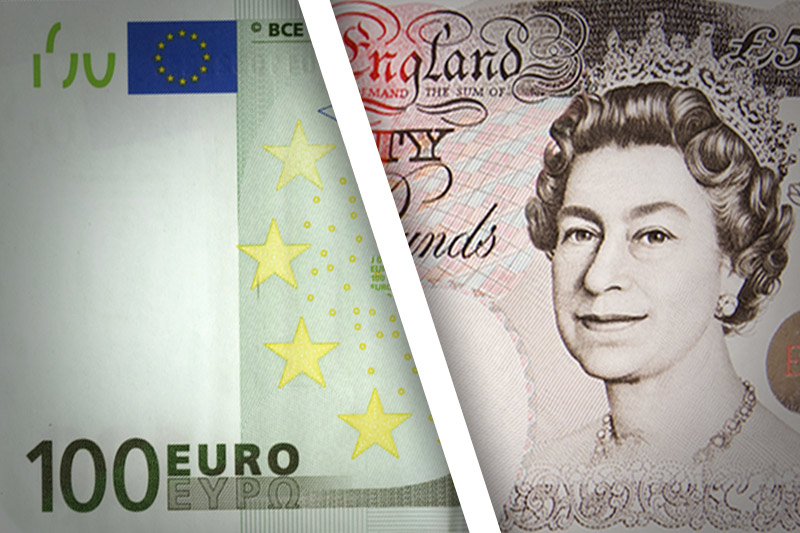Investing.com - The euro edged higher against the pound on Monday, as market sentiment was buoyed by better-than-expected Chinese data, but gains were capped as uncertainty over whether Spain will request a bailout weighed.
EUR/GBP hit 0.8074 during European late morning trade, the session high; the pair subsequently consolidated at 0.8068, easing up 0.11%.
The pair was likely to find support at 0.8022, the low of October 11 and resistance at 0.8094, the high of October 8.
Worries over the outlook for global growth eased after China posted better-than-expected trade data over the weekend, with official data showing that the trade surplus unexpectedly widened in September as export demand increased and imports recovered.
A report earlier showed that Chinese consumer prices rose 1.9% in September, in line with expectations.
The data eased concerns over a slowdown in the world’s second largest economy ahead of keenly anticipated data on Chinese third quarter growth later this week.
The euro remained under pressure amid some disappointment in markets after Madrid did not request financial aid over the weekend and a request for a bailout is now seen as increasingly unlikely ahead of regional elections on October 21.
Elsewhere in the euro zone, Greek Prime Minister Antonis Samaras said Sunday his country was facing the “last hurdle” before recovery and expressed confidence that the government will reach an agreement with international creditors ahead of Thursday’s European Union summit.
Sterling remained vulnerable ahead of upcoming U.K. data on retail sales, employment and inflation later in the week, amid concerns that weak numbers could further undermine hopes for a sustained economic recovery and increase the likelihood for more easing by the Bank of England.
The euro was almost unchanged against the U.S. dollar, with EUR/USD inching up 0.04% to 1.2958, but gained ground against the yen, with EUR/JPY rising 0.42% to 102.02.
Later in the day, the U.S. was to release official data on retail sales, as well as a report on business inventories.
EUR/GBP hit 0.8074 during European late morning trade, the session high; the pair subsequently consolidated at 0.8068, easing up 0.11%.
The pair was likely to find support at 0.8022, the low of October 11 and resistance at 0.8094, the high of October 8.
Worries over the outlook for global growth eased after China posted better-than-expected trade data over the weekend, with official data showing that the trade surplus unexpectedly widened in September as export demand increased and imports recovered.
A report earlier showed that Chinese consumer prices rose 1.9% in September, in line with expectations.
The data eased concerns over a slowdown in the world’s second largest economy ahead of keenly anticipated data on Chinese third quarter growth later this week.
The euro remained under pressure amid some disappointment in markets after Madrid did not request financial aid over the weekend and a request for a bailout is now seen as increasingly unlikely ahead of regional elections on October 21.
Elsewhere in the euro zone, Greek Prime Minister Antonis Samaras said Sunday his country was facing the “last hurdle” before recovery and expressed confidence that the government will reach an agreement with international creditors ahead of Thursday’s European Union summit.
Sterling remained vulnerable ahead of upcoming U.K. data on retail sales, employment and inflation later in the week, amid concerns that weak numbers could further undermine hopes for a sustained economic recovery and increase the likelihood for more easing by the Bank of England.
The euro was almost unchanged against the U.S. dollar, with EUR/USD inching up 0.04% to 1.2958, but gained ground against the yen, with EUR/JPY rising 0.42% to 102.02.
Later in the day, the U.S. was to release official data on retail sales, as well as a report on business inventories.
